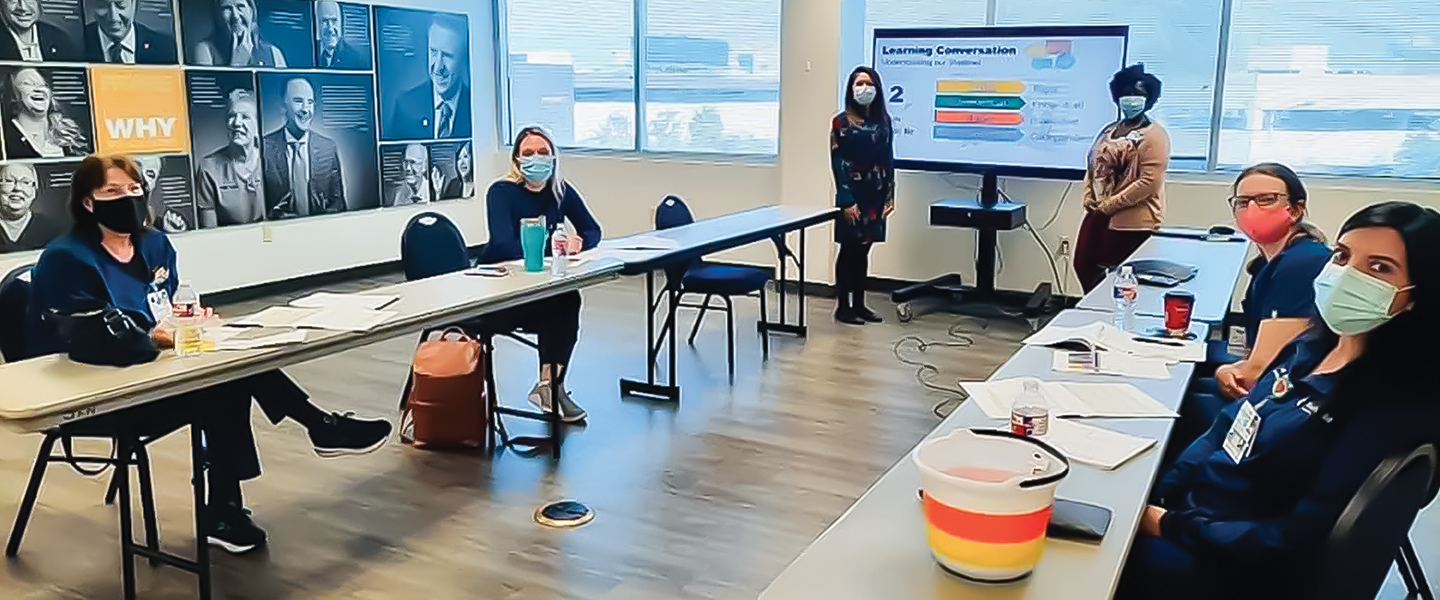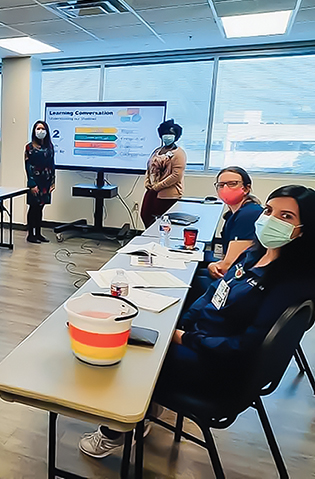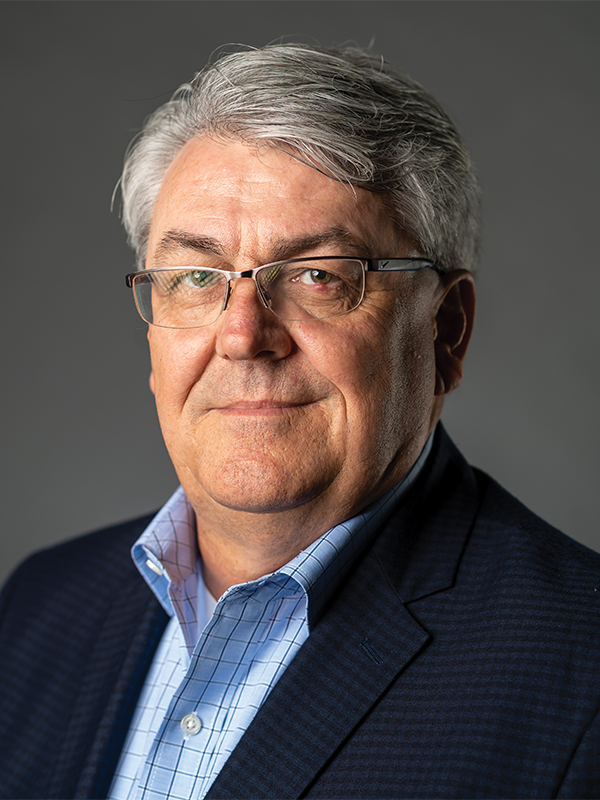As an innovative learning health system rooted in a people-centered mission, HCA Healthcare stood ready to quickly respond to the ever-evolving needs of our patients and colleagues, even in the most challenging of times.



Paul Currie,
Vice President and
Chief Technology Officer,
HCA Healthcare
IT and the Front Line
There’s a very human element driving Vice President and Chief Technology Officer Paul Currie’s mission to ensure that HCA Healthcare’s information technology (IT) team functions as it should.
Paul says that when COVID-19 began to emerge in the U.S. early last year, it soon became very clear that connectivity was going to be more important than ever before. Many colleagues would have to work remotely. Patients who were hospitalized wouldn’t be able to receive in-person visits from family members or friends. Telehealth would become an essential option for patients needing ongoing, preventive or other non-emergency care.
Seemingly overnight, much of the world had to pivot toward a more virtual way of doing business. But as sterile and impersonal as technology may seem, it’s controlled and fueled by humans with emotions. Their work is extremely patient-centered.
“We’re doing this for the patient,” Paul explains. “When you’ve got a human being in that bed, what you do, or have the ability to do, directly affects them and their family. It’s all about taking care of them.”
That patient-centered mindset became even more focused last year with the spread of the novel coronavirus.
Read the full transcript of our interview with Paul here.
Being able to give people an opportunity to see their loved one when maybe they wouldn’t be able to otherwise, through some type of telecare, that’s a difference maker. You’ve now had a direct impact on lives. That’s what keeps us going, because we’ve all been there.— Paul Currie, vice president and chief technology officer, HCA Healthcare
Diversity, Equity and Inclusion Go Virtual
Chief Diversity Officer Sherri Neal leads the design and implementation of diversity, equity and inclusion (DEI) strategy and programs. Her team develops initiatives that reinforce HCA Healthcare’s commitment to fostering a diverse, equitable and inclusive workplace. They also work to cultivate and sustain relationships with suppliers and community partners that broaden our reach and deepen our understanding of the communities we serve.
The pandemic has brought greater attention to healthcare-related racial disparities and increased discussions around their impact on communities of color. During this same period, incidents nationwide involving the deaths of Black citizens have heightened the focus on equity and social justice. To support our colleagues and communities, the DEI team accelerated existing plans and launched new ones, including conscious inclusion training, says Sherri.
Shifting to virtual formats was a challenge, but positive feedback from all segments of HCA Healthcare has confirmed that colleagues are invested in DEI initiatives.
“We’ve been overwhelmed [in a good way] with emails from colleagues who have offered their support and want to make a difference,” says Sherri. “This has helped us advance our work.”
The HCA Healthcare Leadership Institute
The growth and development of our colleagues continues to be a strategic imperative. The HCA Healthcare Leadership Institute responded quickly in the midst of uncertain circumstances, ensuring access to continued excellence.
Making Learning Accessible
Navigating change and managing crises are not new challenges in healthcare. Doing so virtually, however, is a bit more unusual. Like many teams, the Leadership Institute pivoted quickly to adapt and curate resources that were flexible, engaging and high-quality, and that could be delivered virtually.
Rapid design sessions were held to adapt in-person courses to a virtual framework that included instructor-led Webex training center sessions, on-demand content for self-paced learning and virtual cohorts. More mobile-enabled microbursts of learning to support colleagues were made available through Harvard ManageMentor® Spark™ . Another option, the Path Forward toolkit, is one of many examples of new resources that were developed to help leaders and colleagues address change and build resilient teams.
Using Service Learning
The Leadership Institute’s Executive Residency Program is one of several Signature Series programs that engage in service learning. This teaching strategy integrates meaningful community service with instruction and reflection to enrich the learning experience, teach civic responsibility and strengthen communities. This has continued during the pandemic, impacting nearly two dozen nonprofit organizations across 11 states.
Recognizing Culture Guardians
During the first months of the pandemic, HCA Healthcare leaders were challenged to guide their teams in a new way. They were called on to help teams develop resilience using empathy and relationship building. Among those who lead by example is Eric J. Wong, a graduate of the Leadership Institute’s Leadership Excellence Program; he oversees two multispecialty ambulatory surgery centers in California.
Early on in the pandemic, the former U.S. Air Force captain found himself in the familiar position of reacting to a crisis with limited information and added complexities. Global supply chain disruptions, rapidly changing guidelines from the Centers for Disease Control and Prevention, and surges in COVID-19 patients were taxing hospitals’ supplies of personal protective equipment (PPE). Eric was on the forefront of sharing PPE supplies that were largely unused at his centers due to pauses in elective surgery. He leveraged the resources and relationships he needed to communicate quickly and decisively to his many audiences, which included physicians, patients and vendors. It’s one of the defining characteristics of HCA Healthcare: colleagues who go above and beyond to answer the call.


